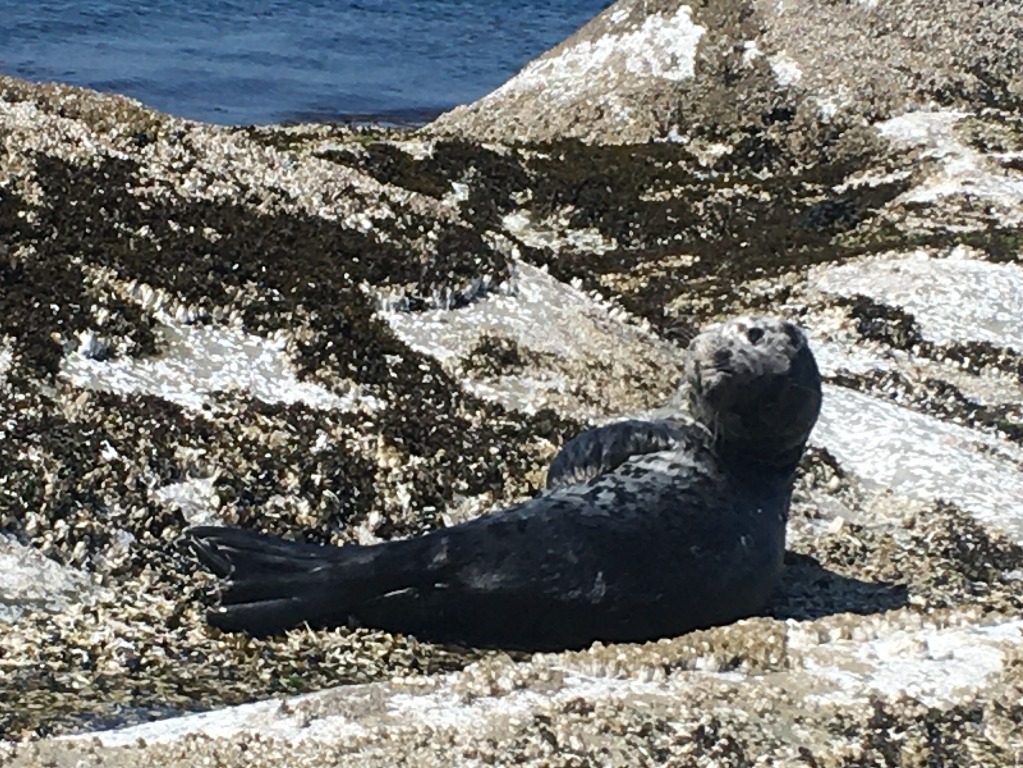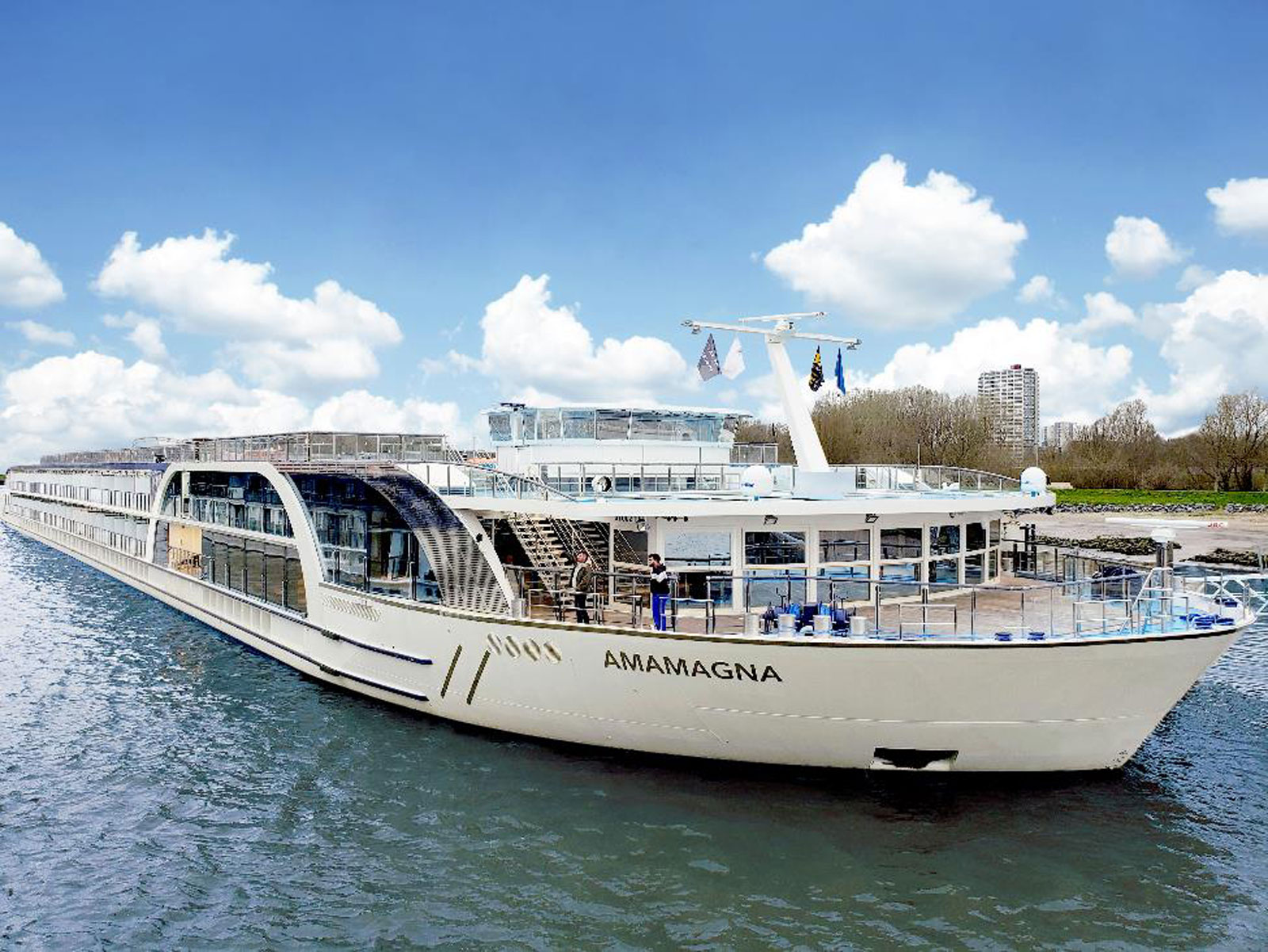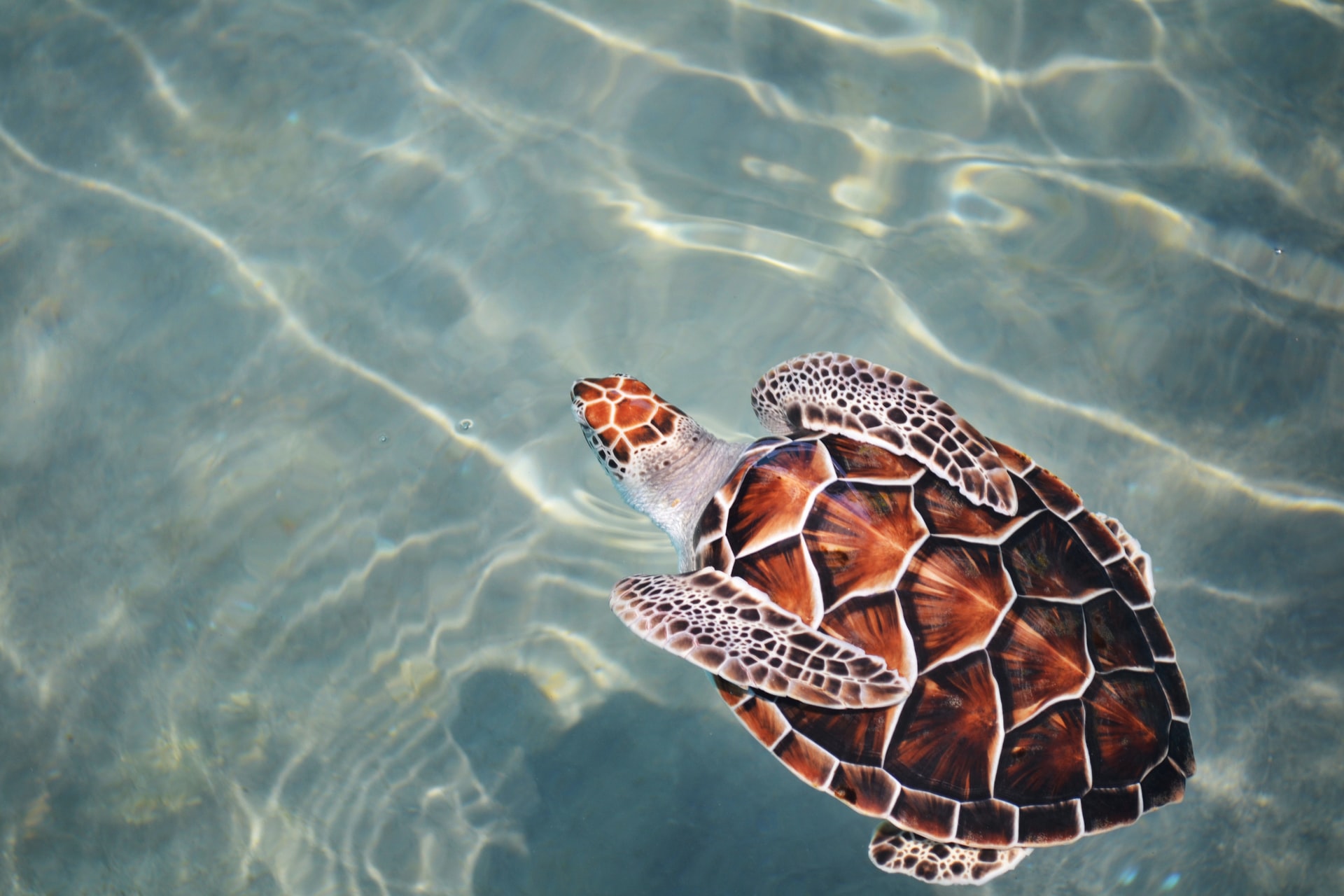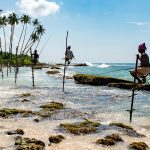More good deeds provide more good news
Ian Stalker
Good work!
The good deeds just keep on coming from those in the tourism industry.
A couple of weeks ago, Travel Courier profiled a number of people in travel who are working to make this world a better place and since then has learned of others who are deserving of recognition.
Here are their inspiring stories.
Watching out for wildlife in BC
Trish Sare, BikeHike Adventures

Trish Sare doesn’t turn her back on marine creatures she shares the waters off coastal B.C.’s Gulf Islands with when she sees those creatures needing help.
Sare, who heads BikeHike Adventures, notes those waters are home to the likes of seals, eagles, great blue herons, otters, porpoises and resident and transient orca whales.
“In the years that I’ve been paddling among the islands I’ve encountered a lot of stranded, injured and very thin baby seal pups,” Sare reports. “I have an extremely soft spot for all animals and their well being and cannot relax if I see an animal in distress or abandoned. Initially, it is difficult to determine whether their mothers have left them to gather food or if they (the mothers) have been killed by predators or boat propellers. I always give the pups a very wide berth while I wait to see if their mother returns before making a call to the Island Wildlife Rescue on Salt Spring Island to report the sighting and a potential rescue operation if they feel that it is necessary. Their team is very passionate and dedicated to the well being and rehabilitation of marine mammals.”
Some might argue that harbour seal populations are healthy in the area and people needn’t provide them with any needed assistance. “But I argue that seal pups are sentient beings and deserve to live as much as humans do and especially don’t deserve to suffer from injury, starvation and dehydration.”
BikeHike works to promote and share the stories of organizations that it feels are dedicated to the well being of people, the planet and wildlife.
“My true fulfillment doesn’t lie in my personal possessions but rather in the feelings of joy that I experience when I am able to do something to make someone’s life a little better,” Sare says. “I believe that having an open heart opens our minds, expands our horizons, builds community and ultimately makes our world a much more cohesive place.”
In support of frontline workers for National Nurses Week
AmaWaterways

Work by those in nursing to help keep people hale and hearty hasn’t gone unnoticed by AmaWaterways.
The company celebrated spring’s National Nurses Week by opening a selection of Europe sailings between October through December for eligible frontline medical heroes to enjoy a complimentary river cruise, with one paying guest in the same stateroom. Frontline medical heroes enrolled in the program can now redeem their complimentary cruise certificate on a choice of 30 sailing dates in 2021. In addition, in recognition of National Nurses Week, the complimentary river cruise offer is re-opened for a limited time to active medical professionals and active first responders who may not have had the opportunity to enroll last year.
“Our frontline medical heroes have worked tirelessly over the past year to keep our communities safe, and they deserve so much recognition for their unwavering dedication,” said Kristin Karst, executive vice president and co-founder of AmaWaterways. “It is our honour to provide these selfless individuals with a much-needed break on a memorable river cruise vacation, where they can rest easy and enjoy leisurely days full of discovery in magnificent European destinations!”
Frontline medical heroes can choose from a variety of seven-night itineraries on several of AmaWaterways’ ships. Welcoming on average 150 guests, ships sail national waterways, docking in the center of iconic towns, historical villages and vineyard regions along the Rhine, Main, Moselle and Danube rivers.
For more information, visit AmaWaterways.ca/Hero.
RIU puts the focus on corporate social responsibility
RIU Hotels & Resorts

The coronavirus pandemic hasn’t led to RIU Hotels & Resorts putting a halt to its altruistic efforts.
In fact, the company has stepped up its efforts to make this world a better place, increasing its investment in projects aimed at children and local communities, with a stronger focus on health, nutrition and education programs.
From 2020 to the present day, RIU Hotels has dedicated 1,593,017 euros to social investment as part of its Corporate Social Responsibility strategy, a department led by CEO Carmen Riu, whose work is focused on supporting health and development programs in the local communities near the company’s hotels. Hotels in RIU destinations have distributed over 500 tonnes of medical supplies and food in their areas. Thanks to their ability to respond, agility and coordination, donations were made in countries such as Aruba, Jamaica, Mexico, the Bahamas, Costa Rica, Panama, the United States, Cape Verde, Ireland, Sri Lanka, the Maldives and Spain.
For instance, RIU plays for all medication at the children’s chemotherapy unit at the Cancun hospital managed by the Aitana Foundation. RIU also supports a biodiversity project with the NGO Oceanus, which aims to plant 1,000 nurseries in the Mexican Caribbean. RIU has also upheld its commitment to Spanish associations that it has worked with for many years, such as Pequeño Valiente in the Canary Islands, which was formed by the families of children affected by cancer, or the hospital clowns from Sonrisa Médica in Mallorca.
With the support of its partners and based on its social innovation methodology — the RIU Method —the social impact of COVID-19 was analyzed in the destinations where the company operates its hotels. The information confirmed the importance of its projects relating to health and wellbeing, such as the program at the Artola clinic in Costa Rica, which is funded by RIU and has provided healthcare to more than 964 children, with a satisfaction rate of 90%. In 18 months the Artola Clinic has worked with more than 900 kids.
The pandemic has also created new social needs, especially in terms of nutrition and education. RIU has placed its bets on care projects that have had a positive impact on the local communities where the company’s hotels are located. RIU has worked with Cape Verde foundation Des-Bem, helping donate more than 23,000 meals for 2,319 vulnerable people.
In Spain, RIU CSR has focused on families at risk of social exclusion. Alongside Save the Children, Red Cross and Ayuda en Acción, technology resources have been provided to favour social e-inclusion and financial transfers have been made to purchase food and basic items for the most disadvantaged groups.
With 65 of its 100 hotels open worldwide and the recovery of the tourism sector on the horizon, RIU CSR hopes to resume the pace it lost due to the pandemic in the short term.
“This will not be easy, but the hotel chain will do so based on how quickly it achieves profitable results that allow it to expand the scope of its social investment. Until this occurs, RIU’s efforts will focus on project continuity and, above all, on assessing their impact to define the social return on investment and contribute towards social change,” RIU says.
A positive buzz about bees
Yucatan

Bee kind to Mother Nature.
The Mexican state of Yucatan noted in the run-up to May 20 – World Bee Day – that tourists touring the state can witness centuries-old meliponiculture, or the harvesting of honey from a unique indigenous bee species — Melipona beecheii — of which the ancient Maya were expert cultivators.
Visitors can learn that among the 20,000 species of bee that exist in the world, is a genus of stingless bees called Meliponinae, or Melipona, native to the Americas. The non-aggressive bee produces a unique honey, different from the more commonly type produced by the Apis mellifera honeybee species that the English and Spanish introduced to the Western Hemisphere in the 17th century. Thanks to the Melipona beecheii’s preference for the nectar of trees and plants that for generations have served to cure various illnesses, this bee’s honey boasts unique properties. Ancient Maya knowledge, supported by today’s scientific research, attributes to this honey a degree of effectiveness in fighting cataracts or glaucoma growth; infections, conjunctivitis and wounds; dermatitis, helps to regenerate tissues (the cosmetic industry uses it to make creams and masks); gastritis, ulcers and internal wounds; anemia (honey is used as a food supplement.); and serious diseases, such as some types of cancer.
Apiculture specialist Andrea Figueroa, from Miel Nativa Kaban, suggests that to preserve the ecosystem of all bees it is not necessary to protect the blooms that provide them with both pollen and nectar. To really help, Figueroa suggests growing plants and flowers typical of the region.
A Melipona beecheii hive barely produces 2 liters of honey a year, whereas one of Apis mellifera can make up to 60. Hence, the price of Melipona honey is much higher than the European type. Another singularity of the Yucatecan honey is that it does not always taste exactly the same; sometimes it is very citrusy and other times sweet, because taste depends on the conditions of the land.
Raising awareness for National Pet Month
Pan Pacific Whistler

The Pan Pacific Whistler can be counted among Whistler Animals Galore’s benefactors.
May is National Pet Month and the Pan Pacific Whistler used the month to donate $9,100 to the animal shelter, which has seen a drop in funding because of the coronavirus pandemic.
“Pet adoptions – particularly for dogs – have skyrocketed during the pandemic, with more people staying at home and seeking companionship,” the resort says. “Pan Pacific Whistler Village Centre’s pet program makes it easy for people to travel with their four-legged friends when public health restrictions are eased – and, as an added incentive, the hotel will donate $5 per night from every pet stay booked to WAG, a Whistler-based animal shelter committed to enriching the lives of animals who have not yet found their homes.
The resort recognizes that financial difficulties have significantly curtailed charitable donations over the past year.
“While Whistler is extremely dog-friendly, some experiences might not be suitable for four-legged friends. In these cases, Pan Pacific Whistler Village Centre staff are happy to recommend professional pet sitters that offer in-suite pet sitting or private walks, such as Whistler Dog Sitting. Alpine Dogs offers morning adventure hikes in the Whistler backcountry; the hotel’s Guest Services team would be happy to arrange the excursion. Don’t forget to tag your pet’s Whistler adventures using the hashtag #panpacificwhistlerpets for a chance to win a stay at the Pan Pacific Whistler Village Centre.
Pan Pacific Whistler Village Centre welcomes furry friends with an amenity package – that includes food and water bowls, biodegradable waste bags, a blanket and delicious treats – as well as information about local dog walkers and pet sitters. Pet fees apply at a modest cost of $25 per night plus tax. If the guest and pet are staying for over four nights, the fee is capped at $100 per stay.
“We’re so pleased to offer a fun getaway for new and seasoned pet owners in the heart of Whistler,” said Julie Lanteigne, general manager of Pan Pacific Whistler. “We love animals at Pan Pacific Whistler, so we’re beyond thrilled to be able to support WAG while offering our guests a much-needed escape with their dogs or cats. We hope lots of people bring their pets during their stay when travel restrictions are lifted, so we can continue supporting local animals seeking their forever homes.”
“We’re so grateful for Pan Pacific Whistler and all of the hotel’s guests for supporting WAG and enabling us to continue helping lost or unwanted animals,” said Catherine Mazza, assistant manager and marketing coordinator at WAG. “We offer programs ranging from a Matchmaker adoption process to foster programs, animal rehabilitation, and lost and found animal services – and none would be possible without generous donors like Pan Pacific Whistler.”
Protecting loggerhead sea turtles
Florida Keys

A loggerhead sea turtle is finding itself in some familiar surroundings thanks to the Florida-Keys based Turtle Hospital.
In celebration of Earth Day, staff from the hospital released the rehabilitated loggerhead sea turtle back to the ocean off of Marathon.
Onlookers gathered to applaud the successful release of “Sparb,” a 125-pound sub-adult sea turtle that was rescued in late January after being discovered floating offshore, unable to dive, with severe wounds and a missing front right flipper.
Typically the sea turtles admitted to the facility are named by their rescuers. Among Sparb’s rescuers was a Keys resident who wished to pay tribute to her late husband, who had that nickname and was an amputee on his right side.
When the endangered reptile arrived at the Turtle Hospital, its condition was critical and it was not expected to survive. Treatment included a whole blood transfusion, broad-spectrum antibiotics, extensive wound care, laser therapy, fluids, vitamins and a nourishing diet of fish and squid.
“We have a sea turtle which is the world’s oldest animal – to be able to take one that was, you know, in peril, so injured, and return it to its ocean home on Earth Day,” said Bette Zirkelbach, the Turtle Hospital’s manager. “There’s nothing better.”
Zirkelbach added that individuals can make a difference regarding the environment.
“We are at that sweet spot in time, there’s an awareness,” she said. “I really believe that today, with awareness, every day is Earth Day.
“People are aware, and being able to return this iconic animal to its ocean home today, it’s got a lot of meaning,” she added.
The Turtle Hospital is the world’s first veterinary hospital dedicated to the rehabilitation of endangered sea turtles. The facility has been rescuing, rehabilitating and returning turtles to the wild for more than 35 years.
Spring marks the beginning of sea turtle nesting season, which traditionally runs from March through the end of October.

















